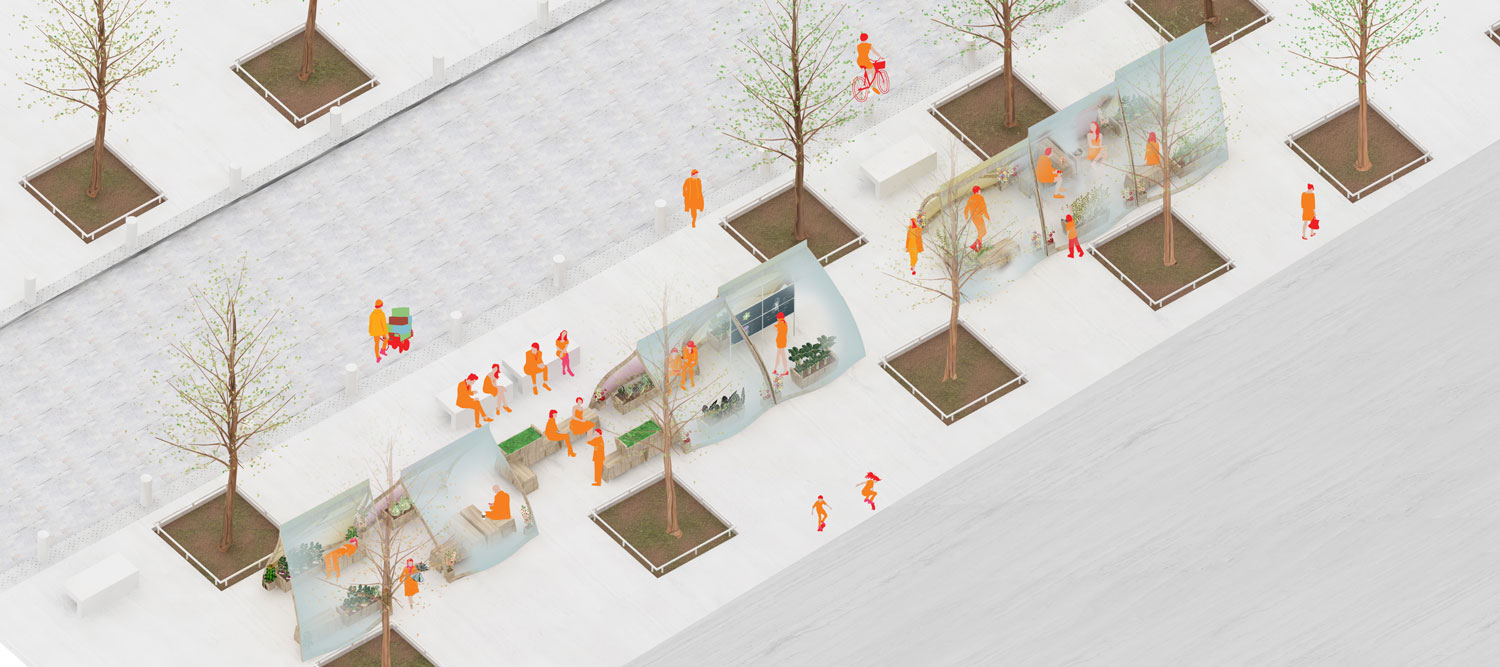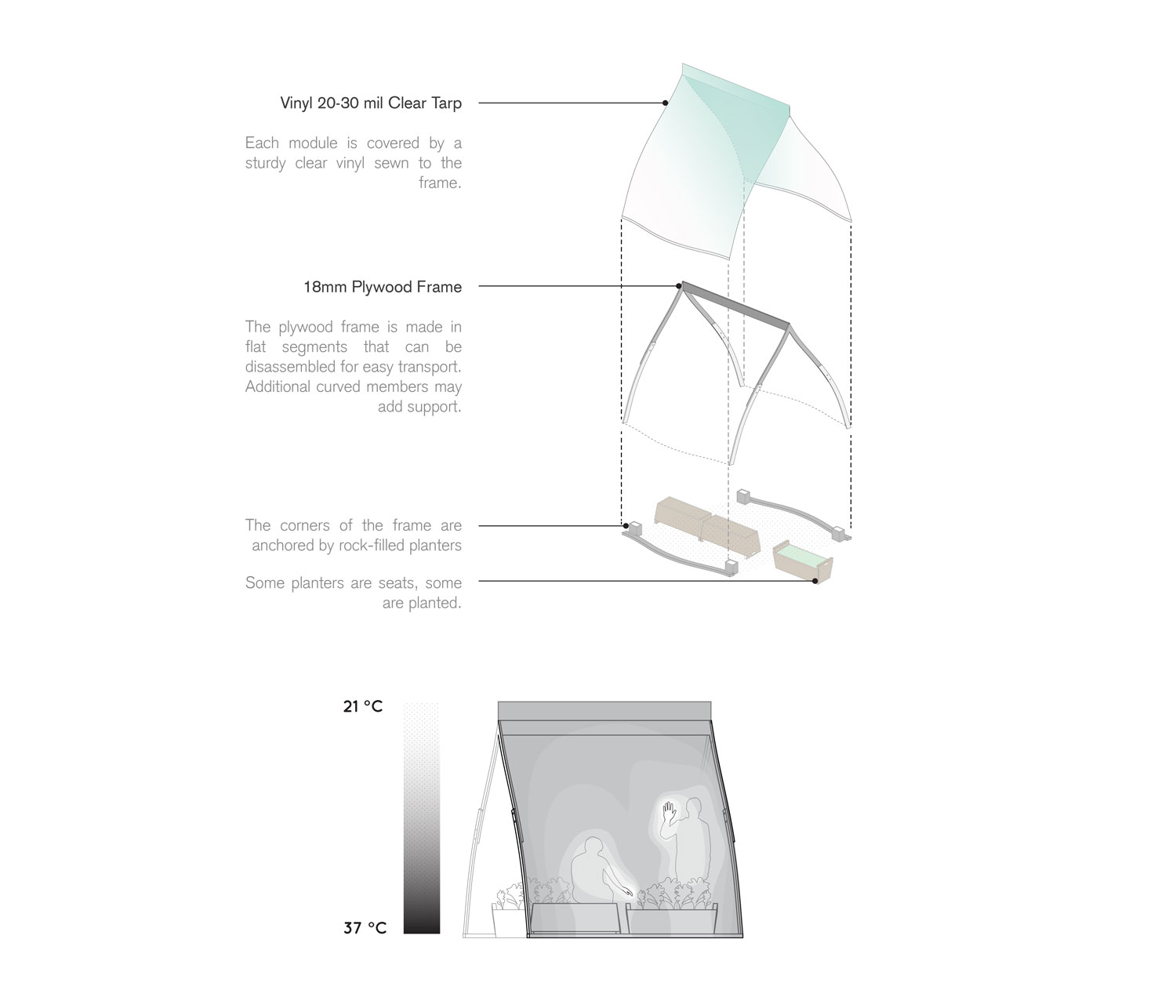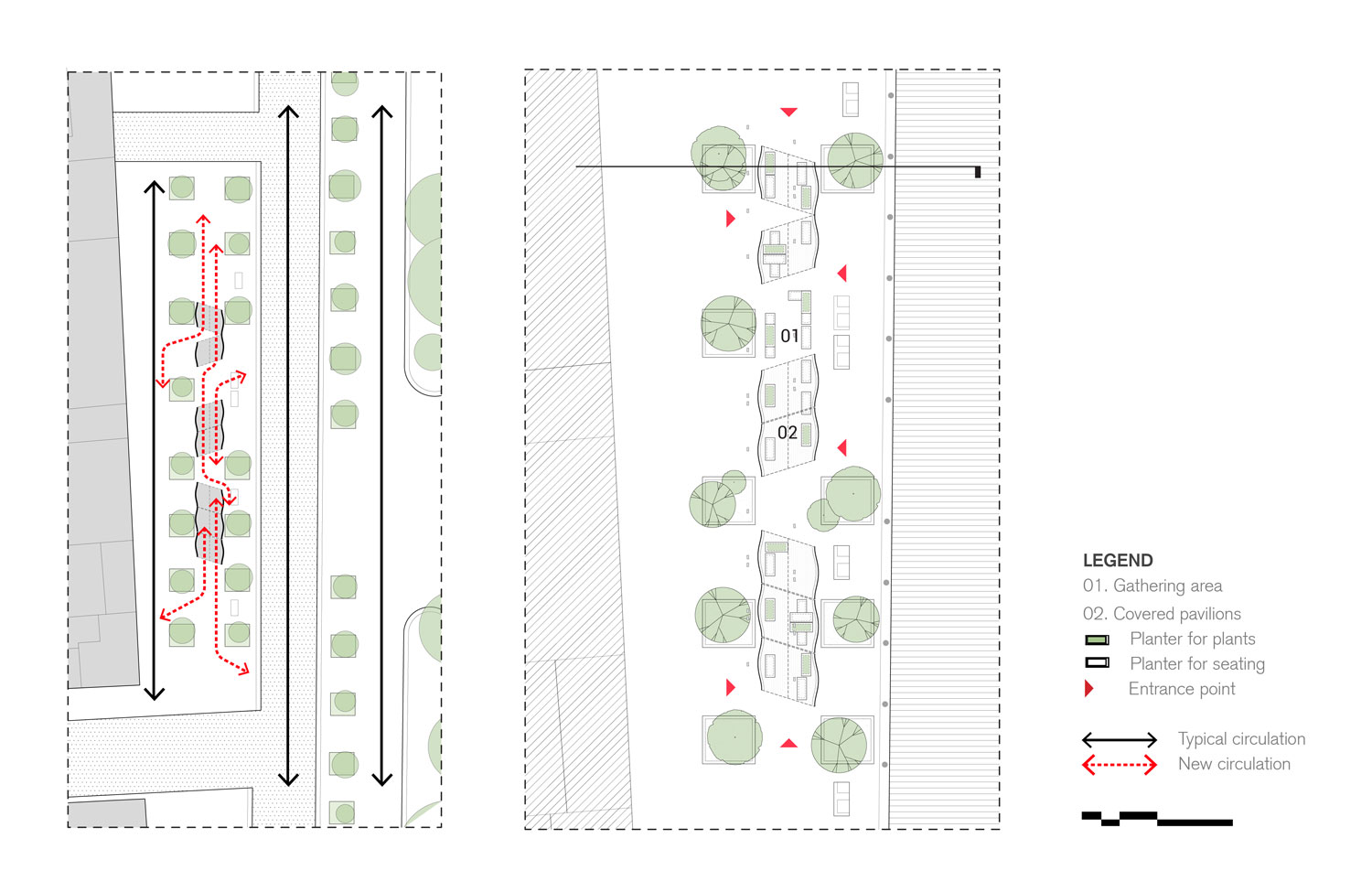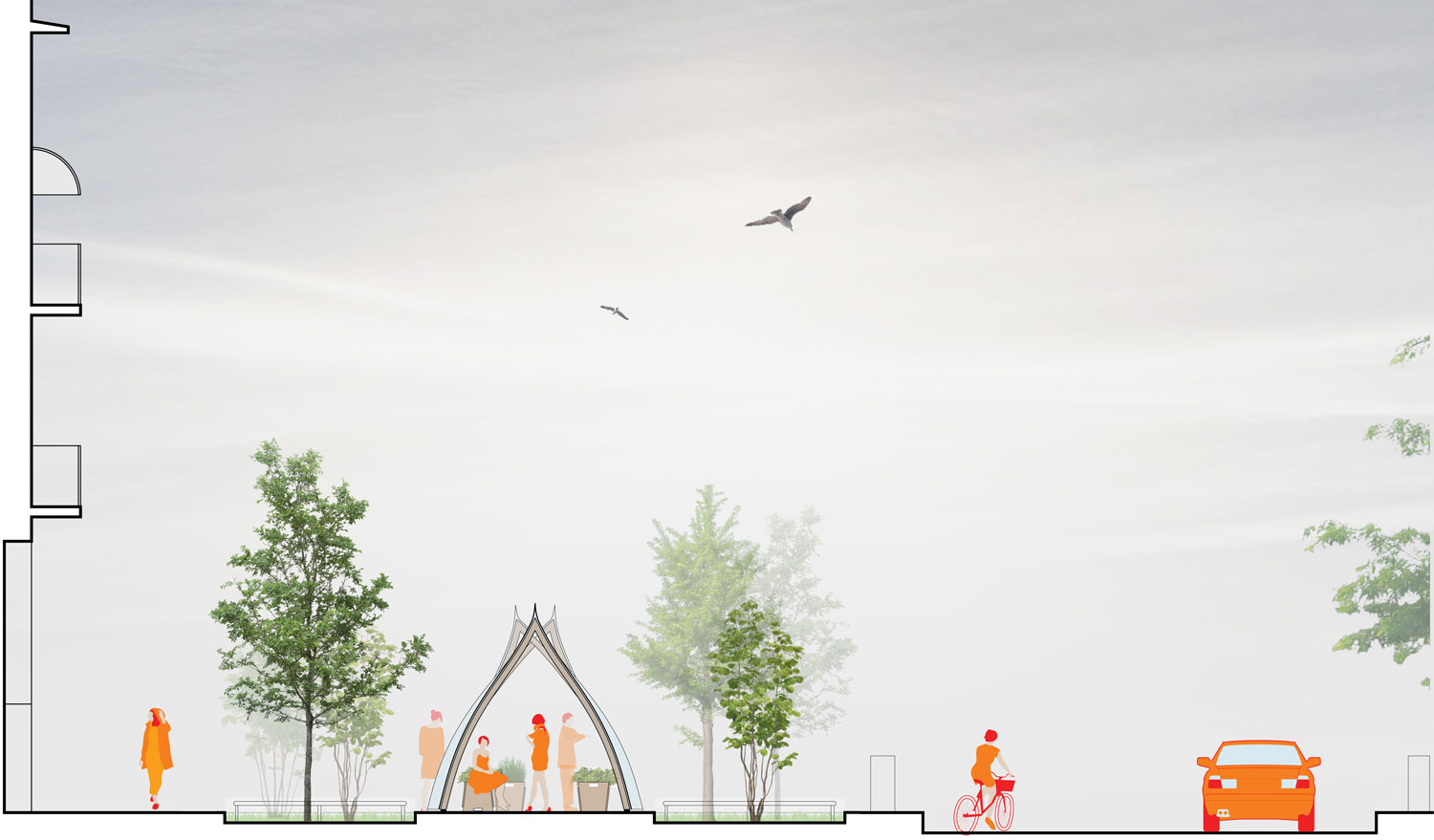☉ Garden Walk is a proposal by Prathyusha Viddam and Tina Gao for Arquine in 2016. It is located in Mexico City Mexico in an urban setting. Its scale is extrasmall with a budget of 50.000 €. Key materials are polycarbonate and wood.
A place for an intimate picnic, a place to take a nap, a study spot, or somewhere you can take a cooking lesson.
The Gardenwalk is a series of linked pavilions that create a new zone between street and sidewalk to promote a symbiotic relationship between people and nature and that augments social life in an urban environment.
While streets and sidewalks are typically designed for movement, to push people from one point to another, the network of pavilions is marked by slowness. The Gardenwalk is a refuge where a diversity of social activities and gardening can coexist. The pavilions on the street are open, which limits their ability to retain heat, so the clear tarp coverings are treated with a thin layer of thermochromic pigment that turns transparent with body heat: a reminder that warmth is something needed by both plants and people.
After the Festival, the pavilions can be packed flat. Each module will be donated to a school or urban farming organization to be used as an actual greenhouse. The Gardenwalk will pass out seeds to anyone wishing to plant what will begin a school’s vegetable garden.
The Gardenwalk can also host exhibitions, cooking demonstrations, gardening lectures, or presentations on composting and recycling programs at the pavilion during the Festival.
The installation will provide a platform for the many local organizations in Mexico City promoting health and wellness in urban life.
Green zone
The modules sit between two rows of trees on Calle Dr Mora, forming a new zone where the public can participate in gardening activities or a discussion, find a spot for a picnic, or just pause for a nap.
The installation augments the existing sidewalk with a tunnel that forces the public to walk through slowly, to stop and smell the flowers.
Material and budget
We estimate the cost of each module, including wood frame, wood treatment, covering, and fabrication costs to be $10,700 each, and $64,200 for six modules.
Additional modules and planters may be sponsored by local organizations who may keep the greenhouses after the Festival. In addition, we will allocate $30,000 to produce 30 rectangular planters, $5,000 for soil, plants & seeds and $800 for a exhibition board. We aim to use recycled wood and local compost as much as possible. The modules can be flatpacked and reinstalled at local schools or urban farms to which they are donated.



